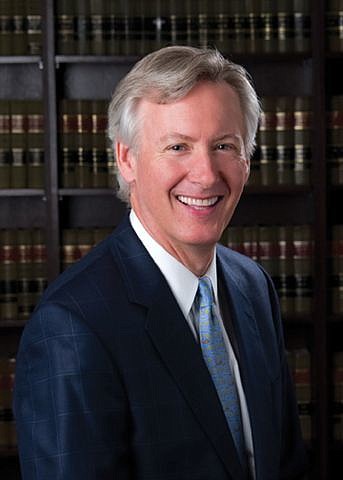
By Michael Tanner
Florida Bar Board of Governors
Hopefully all of you know by now that the train known as the Florida Constitution Revision Commission, CRC for short, has left the station and is gathering steam.
Hopefully too, you know the basic facts about the CRC. It meets every 20 years to review Florida’s Constitution and propose amendments for consideration by voters.
The last CRC met in 1997-98 and proposed nine amendments dealing with issues such as public education, restructuring the state Cabinet, election processes and firearm purchases.
In the November 1998 general election, Florida voters approved all but one of those proposals (they rejected a proposed amendment dealing with local and municipal tax exemptions).
The CRC is composed of 37 members. Fifteen were appointed by Gov. Rick Scott, nine were appointed by Senate President Joe Negron, nine were appointed by Speaker of the House Richard Corcoran and three were appointed by state Supreme Court Chief Justice Jorge Labarga. Attorney General Pam Bondi sits as the 37th member.
Commission Chair Carlos Beruff from Bradenton also was appointed by Scott.
The sole CRC member from Northeast Florida is Hank Coxe, who was appointed by Chief Justice Labarga.
The group began its work in March with a series of public hearings throughout the state. A public hearing was held here in Jacksonville at the Florida State College at Jacksonville Kent Campus on April 27. The public had the opportunity at the hearings to ask the CRC to propose amendments on various issues. To date, 390 such proposals have been made by citizens and may be viewed on the CRC’s website at flcrc.gov
A final public hearing of the first phase of hearings is to be scheduled in Broward County on Aug. 23 or 24.
On July 14, Beruff announced the appointment of 12 standing committees to address various procedural and substantive constitutional issues. Coxe will chair the committee addressing ethics and elections (Articles II and VI of the Constitution) and immediate past president of The Florida Bar, Bill Schifino, will chair the committee addressing Article V issues. It provides the framework for the Florida judiciary and other issues relating to that branch of government.
The committees will begin working on proposed amendments this fall and are expected to complete that work by February. A second round of public hearings, in which the CRC will seek public comment on its proposed amendments, will take place in March and April.
Under the CRC’s rules, at least 22 of the commissioners must vote to approve an amendment for it to be presented to the voters. All proposed amendments so approved by the CRC must be filed with the Florida Department of State on or before May 10 for those proposals to appear on the November 2018 general election ballot.
The Florida Bar is closely monitoring the activities of the commission. Updated information about the CRC’s activities can be found on the CRC’s website or on a dedicated page at floridabar.org/crc.
On Sept. 7, the Bar will formally launch a member and public education campaign in Tallahassee. The campaign is called “Protect Florida Democracy: Our Constitution, Our Rights, Our Courts” and it aims to improve knowledge of the CRC and its workings among our members and the public.
The campaign will highlight topics such as the separation and balance of powers, why the state constitution works best as a limited document and the importance of a fair and impartial judiciary.
What can you do?
Our members’ involvement is critical to the success of the Bar’s education campaign. The campaign will give you access to a variety of resources to help you share information about the CRC with family, friends, clients and colleagues.
The campaign website, ProtectFLDemocracy.org, will include sample talking points about the judicial branch of government, informative and entertaining video presentations and more. You can use these resources to address your civic or community organization, church or synagogue and other groups.
If your organization wishes to host a guest speaker on the topic of the CRC, contact The Florida Bar’s public information department to make arrangements.
Please join us in ensuring that all Floridians know about the importance of the CRC and that revising our state’s governing document must be done carefully and cautiously.
Michael Tanner, a partner at Tanner Bishop, represents the 4th Judicial Circuit on The Florida Bar Board of Governors.